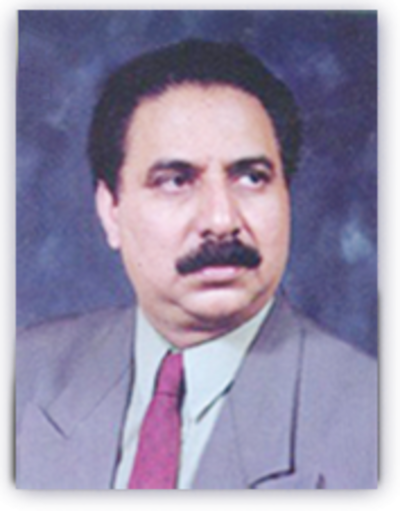| When Death Came…
MBBS ( Hyderabad ), MS ( UK ), FCAP ( USA ), FRCP ( Canada ) Mohammed Ayub Ali Khan, BA (Hons.), York University ( Toronto ) This book is dedicated to the memory of the unknown Hakeem from Gurdaspur who prepared and delivered medicines for Allamah Iqbal in Lahore . In a letter dated 3rd April, 1992 Iqbal writes to a friend: “Yesterday, a Hakeem Saheb from Gurdaspur arrived in person. He had somehow learnt about my sickness. He gave me the medicine whose effects have been beneficial. I am certain that this medicine will be helpful because sincerity, which has pulled the Hakeem Saheb to my house, is one of the ingredients used in its preparation.” |
Nothing is purposeless in nature’s workshop; the purpose of some is apparent while of others is not so clear. It can rightly be asked as to why discuss a facet of Iqbal’s life which was of concern only to him and how doing so will be beneficial to the masses. It can further be asked how discussing it at this point in time, years after his death, will benefit Iqbal? The answers to all these questions can be found more in between the lines than the printed lines of this book.This book is unique because it treats medical information, physical states, and spiritual beliefs of Iqbal in an extraordinary manner. The discussion on these topics is based on authentic references whose perusal will be of benefit not only for the common man but also to serious students of Iqbal studies. All discussion and conclusions are based on verbatim quotes from letters and other authentic sources. The following points clearly emerge from the material presented in this book: 1. Iqbal was one of those lucky ones who received the best medical care of his time. He had more than 30 doctors, hakeems, and an army of fans. These ranged from Masih ul Mulk Ajmal Khan, Afsar Al Attiba Hakeem Nabeena, internationally recognized Mathura Das, and Chief Radiologist Dr.Abdul Basit and his assistants. They all worked day and night to ensure that Iqbal received the beast treatment. This is indeed amazing when we compare his treatment with that of other poets: Farsi’s famous poet Firdausi died an indignant death, a poet of the great caliber as Attar is killed by the strike of a lowly soldier, Hafez is barely spared because of his humility, Jaffar Ali Zettelli is crushed under an elephant’s foot, and Insha Allah Khan is made the target of royal anger. Compared with their examples Iqbal was indeed lucky that he is treated in such a manner which will make even the Kings envious. Medicine and its practioners were serving Iqbal as though they were engaged in worship. Hakeem Qarshi is massaging the palms, Dr.Muhammad Yusuf the feet; Dr.Abdul Qayyum is tolerating the anger of Iqbal as though it is honey; Dr.Selzer, or Dr.Jamiat Singh, or Eye Surgeon Mathura Das is always present in Iqbal’s house and consider it to be their duty. Such care is not in written in everyone’s fate. ہر کہ خدمت کرد او مخدوم شد 2. Apart from Iqbal there is hardly any Urdu or Farsi poet who has written about his ailments in such detail. This is evident from the fact that Iqbal has mentioned his diseases in 251 of the 1400 published letters. 3. Iqbal enthusiasts are aware of the numerous claimants who try to impress that they selflessly served Iqbal during his numerous phases of illnesses. Most of these self-claimants have been found to be exaggerating their real service to Iqbal in order to enhance their own status. It is indeed tragic that the sincere caretakers of Iqbal remain forgotten. Therefore, an earnest attempt has been made in this book to highlight their contributions by culling information from authentic sources. 4. We learn of Iqbal’s keen interest in and knowledge of the field of medicine. This is evident from his inquisitive questions in his letters. He was especially interested in Islamic Medicine. Even though he delivered two lectures on Prophetic Medicine he was waiting for a revolutionary breakthrough in its modern practice. 5. Iqbal’s illnesses and their treatment provides for a comparative study of the allopathic and the traditional forms of medicines. Iqbal had clear preference for traditional medicine but he also utilized the services of allopathic medicine when required. 6. We learn of the personal character traits of Iqbal which were overwhelmingly mystical in nature. 7. We learn of Iqbal’s daily time table and activities which provides a peek into his habits from the use of miswak to his dietary preferences. |

